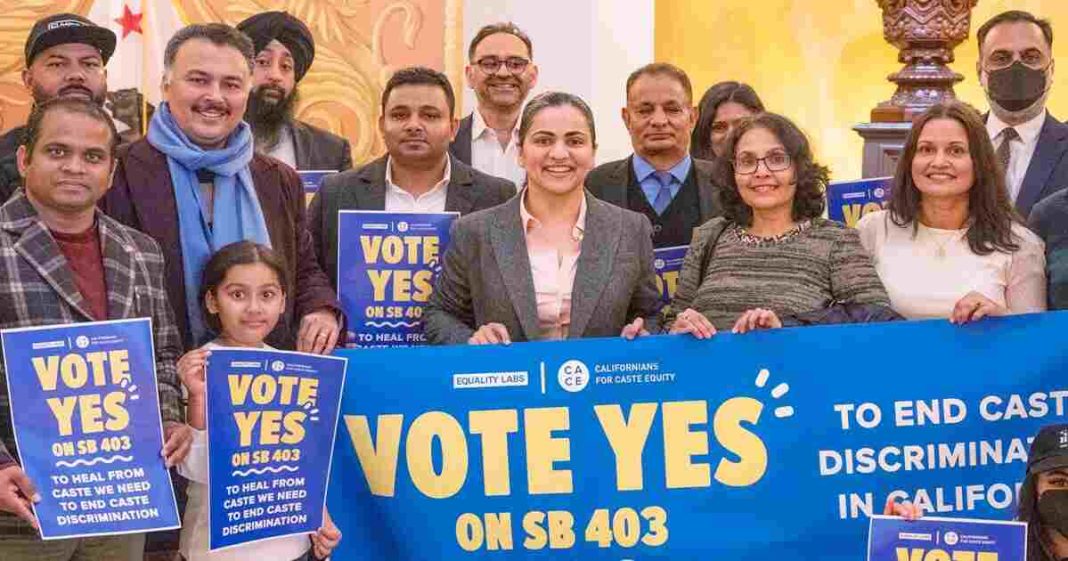California Senator Aisha Wahab has proposed an amendment to California’s Civil, Education, and Government Codes by adding “caste” as a protected class. The senator’s proposal aims to address the problem of caste discrimination, which has affected communities of South Asian descent for centuries. However, the proposed bill has been met with criticism due to its potential unintended negative consequences. In this essay, we will analyse the proposed bill, its potential consequences, and suggest alternative solutions.
The History of Discriminatory Laws
California has a long history of passing discriminatory laws targeting various communities of colour. One of the earliest examples is the 1850 Foreign Miners’ Tax, which imposed a hefty monthly fee on California-born Mexicans and foreign immigrants for the right to mine. In addition, the California Alien Land Laws of 1913 and 1920 targeted “aliens ineligible for citizenship” – Japanese, Chinese, Korean, and Indian immigrant farmers – to deprive them of their agricultural land and long-term leases.
The Proposed Bill and Its Potential Consequences
The proposed bill, SB 403, seeks to add “caste” as a protected class in California’s Civil, Education, and Government Codes. While the bill aims to protect South Asian communities from caste discrimination, its potential negative consequences are enormous. If passed, the bill could limit the equal protection and due process rights of South Asians and other communities of colour, resulting in racial profiling and legislation based on false claims of national origin, ethnicity, and ancestry.
Read More: Climate crisis intensifies extreme shifts in california’s weather patterns
The bill could also result in discrimination against South Asians, as it presumes that all members of the community have a caste and identify by it. This presumption is not true, as not all South Asians identify or are identified by a caste. Furthermore, there is no agreed-upon definition of caste, even in the government of India. As a result, the bill could lead to confusion and misinterpretation of the term, further complicating the issue of caste discrimination.
The bill also creates a discriminatory policy that singles out South Asians primarily, although existing laws already protect against discrimination based on birthplace, descent, culture, or accent – all of which can apply to caste, clan, kin, tribe, or any of the many ways people identify without singling out particular ethnic groups for scrutiny.
Alternative Solutions
The problem of caste discrimination is a serious one, and it requires a thoughtful and nuanced approach. Rather than singling out South Asians and creating a new protected class, existing laws with broad, neutral categories should be deployed to provide everyone with protection and the obligation to treat everyone fairly. If a case of caste discrimination is reported, it should be investigated and prosecuted under existing anti-discrimination laws, such as the California Fair Employment and Housing Act.
Education and awareness campaigns are also essential to address the issue of caste discrimination. The South Asian community should be informed about the negative consequences of caste discrimination and how to report it. Employers should be trained to identify and prevent caste discrimination in the workplace, and public officials should be educated on the issue to better address the needs of the community.
Read More: California-Punjab sister agreement
In conclusion, while the intentions of Senator Aisha Wahab’s proposed bill are commendable, the unintended negative consequences are enormous. Rather than creating a new protected class, existing laws with broad, neutral categories should be used to protect against discrimination. Education and awareness campaigns are also essential to address the issue of caste discrimination. By working together, we can create a California that shines the light of mutual respect and dignity on all Californians, regardless of who they are or where they come from.














